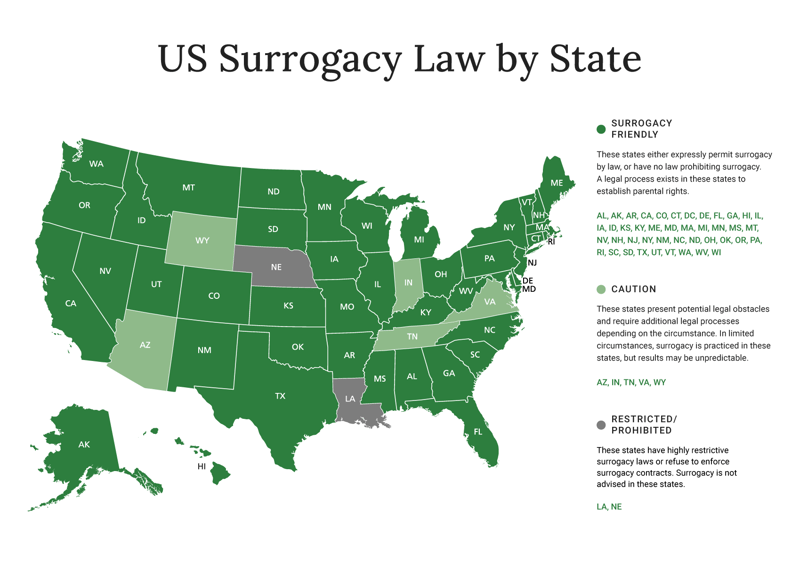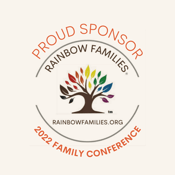
Gestational surrogacy is an exciting and highly successful way to build your family. Unfortunately, surrogacy laws can vary from state to state, meaning surrogates and intended parents in certain U.S. states experience complexities and challenges posed by legal, medical, and logistical barriers.
There are no federal regulations on surrogacy, and state laws on surrogacy differ between states. Some states are more surrogacy-friendly (such as California), and others are less accommodating (like Arizona).
State surrogacy laws contribute to the modeling of the legal surrogacy process. Because of this, both surrogates and intended parents should look for surrogacy-friendly states with a supportive legal framework.
Let’s cover the best states to pursue surrogacy in 2024, for both gestational carriers and intended parents.
In the most surrogacy-friendly states, intended parents can receive the pre-birth orders regardless of their sexual orientation, marital status, and sometimes the genetic linkage to the baby. These surrogacy-friendly states also permit the birth certificate to feature both parents' names and allow both uncompensated and compensated surrogacy agreements.

California is considered a very surrogacy-friendly state for both intended parents and surrogates. Regardless of where you live within the state, whether in a large city such as San Francisco, San Diego, Sacramento, Los Angeles, or the less inhabited regions of California, it's arguably the best state for surrogacy in the country. It's even home to the best IVF clinics in the world.
The different types of intended parents who can opt for surrogacy to build their families in California include:
In some states, there are no legislations outlawing surrogacy, and gestational surrogacy is typically allowed by statute. They include:
You may practice surrogacy in these states, but you might encounter legal obstacles to completing the surrogacy process.
These states include:
In states where surrogacy law is unclear, and there may be significant variations in the outcomes of surrogacy contracts. Instead, court rulings on previous surrogacy cases determine most state-by-state surrogacy policies and regulations. Therefore, handling surrogacy cases in some states may differ from judge to judge or one county to the other. Unique personal circumstances can also influence the legal surrogacy process.
There are only a few states whose statutes explicitly prohibit surrogacy contracts or are highly restrictive to certain circumstances. These red-light states include:
The surrogacy process does not have to be stressful. At Hatch, we hold your hand throughout this journey and help you have a smooth surrogacy experience. Reach out to our team today to learn more. We're happy to help.
These Stories on Surrogacy - For Intended Parents

.png?width=150&height=150&name=Open-Door-Badge_Beyond-Inclusion-LGBTQ-101%20(1).png)

